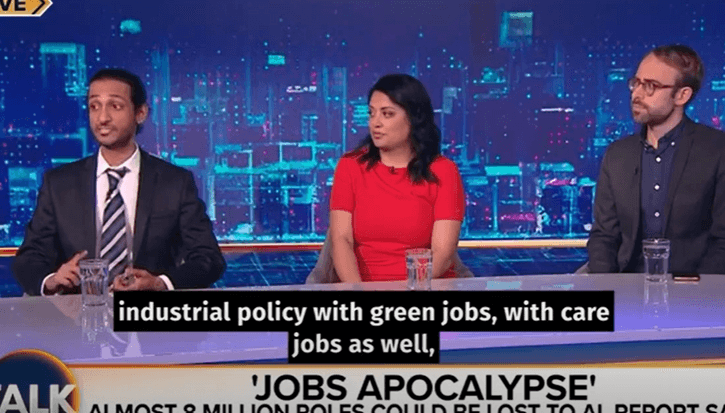Tackling tax havens: 'A European and American financial registry would be a global public good'
What will it take to tackle the wealth preservation industry?Article
The lesson from the Panama leaks is simple: the regulation of this industry and the territories that shelter them need to be redesigned from top to bottom. A wholesale reworking is needed to limit the growth of inequalities and avoid the risk of a global oligarch takeover.
Preserving wealth is an age-old game, but one that has undergone a formidable expansion since the 1980s. The shocking growth of this industry has been due to exploring, in every small way imaginable, one particular way of preserving wealth: hiding it from the taxman. There are ways to do it that are legal – the use of fiscal hideaways – and others that aren’t – keeping undeclared offshore accounts – and others yet which are found in the vast grey zone, sometimes illegal and sometimes not (and very often no one seems to be able to tell).
The revelations of the Panama papers have provoked a worldwide outcry, as they have revealed the coarse strategies being used at a time when inequalities wax and growth wanes. They show that a small elite has access to more sophisticated and varied ways of growing its assets while avoiding tax, as the immense majority of the population must put up with increased tax bills. They bring to the bright light of day the unrelenting mechanics of the oligarchist regime based on the defence of accrued wealth, as explored by Jeffrey Winters in his landmark work, Oligarchy (Cambridge University Press, 2011).
The rules of the game keep getting broken
But there is something more troubling at work. At the heart of financial regulation there is an essential distinction, however ambiguous it can sometimes seem, between wealth that is legitimate and wealth that is not. Anti-money-laundering legislation compels financial institutions to reveal their clients, and it bans them from helping to grow money derived from drug trafficking, criminal activity, corrupt officials or launderers.
The Panama leaks reveal a number of institutions based in the tax havens that don’t care a jot for this distinction. For them, any client is good to go. In 2015, among the 14,086 shell companies domiciled in the Seychelles, Mossack Fonseca was only aware of the beneficial owners of 204 of them.
Put it another way: not only can a small elite grow its wealth without paying tax, but we have no way of knowing whether this wealth is even legitimate. We can hardly have confidence that the wealth protection industry has a strict entry policy on who it lets in.
It is high time to draw conclusions from the facts before us. Since the creation of the Financial Action Task Force in 1989, the work of the fight against money laundering has been to create rules, to ensure the greatest number of states possible adhere to them, and periodically to send in inspectors. Norms and systems of anti-laundering have generally been perfected over time, but the recent revelations show that even the basic rules of the game – the identification of beneficial owners and politically exposed people – are being regularly broken.
Although necessary, an approach based on trusting offshore territories to apply the law is not going to be enough. There is too much money to be made in helping fraudsters and launderers and too little to lose without concrete international sanctions.
Establish registries
A new, complementary approach is necessary. We know that Panama, the British Virgin Islands and the Cayman Islands (among others) host hundreds of thousands of shell companies. Why do we accept so well-developed a financial industry in the British Virgin Islands, especially when it is used, at least in part, for criminal ends?
The US and EU should immediately impose sanctions against these territories and maintain these sanctions until they are capable of showing that they have correctly identified the beneficial owners of all shell companies they host.
If there is a lesson to draw from the financial crisis and these repeated scandals, it is that a group of financial actors have barely a scruple in breaking the law as long as there is enough money to be made. A sanctions-based approach would encourage better behaviour by making fraud and money-laundering more expensive than they are today.
Indeed, the wealth of these shell companies is not in Panama or the Virgin Islands – it’s invested in property in London and New York, or in French shares or German bonds. It is an essential prerequisite of financial regulation and the fight against inequality that the beneficial owners of wealth can be identified. There are two approaches.
Europe and the US should politely request that Swiss banks, Luxembourg investment funds or Panamanian creators of shell companies hand over this information. It is in this spirit that current efforts, under the auspices of the OECD and G20, are working to create a global system of automatic exchange of bank information. Certain financial actors will fulfil their obligations well. Others, if what we’ve seen in these scandals is anything to go by, will do so poorly or not at all.
But there is another approach: Europe and the US can themselves try to discover who possesses the wealth that is on their soil, whether in real estate in Manhattan or Chelsea, in shares traded on the Paris stock exchange or in German bonds.
Concretely, this involves establishing registers of property ownership and finance that will create a census of the beneficial owners of buildings, land and European and American financial titles. These registers would take current land registry records and extend them to shares, bonds and investment funds. They will travel down the chain of intermediary financing to the real beneficiaries.
Such registers would benefit not only our economies but also developing countries which are, at the moment, unable to identify the wealth hidden by their elites in western countries – a problem which has no short-term prospect of changing, as automatic exchange of bank information will not help them. A European and American financial registry would be a global public good. It is the key step in the fight for financial transparency.
Gabriel Zucman is an economist and the author of The Hidden Wealth of Nations (trans Teresa Lavender Fagan; University of Chicago Press, 2015).
This article was originally published in French in Le Monde: http://www.lemonde.fr/idees/article/2016/04/06/la-lutte-contre-la-fraude-fiscale-est-a-repenser-de-fond-en-comble_4896602_3232.html
Related items

Forging ahead: Deciding the direction of IPPR's Migration Policy Unit
In our last blog post for the Migration Policy Unit we shared our new way of working as we endeavour to be inclusive and transparent in our policymaking process. In this blog we set out what our first and flagship project is for the policy…
Who gets a good deal? Revealing public attitudes to transport in Great Britain
Transport isn’t working. That’s the message from the British public. This is especially true if you’re on a low income, disabled or living in the countryside. The cost of living crisis has exposed the shortcomings of our transport system,…
Bhargav Srinivasa Desikan on TalkTV discussing AI
IPPR's Bhargav Srinivasa Desikan on TalkTV discussing his new report on the impact of generative AI on the UK labour market.